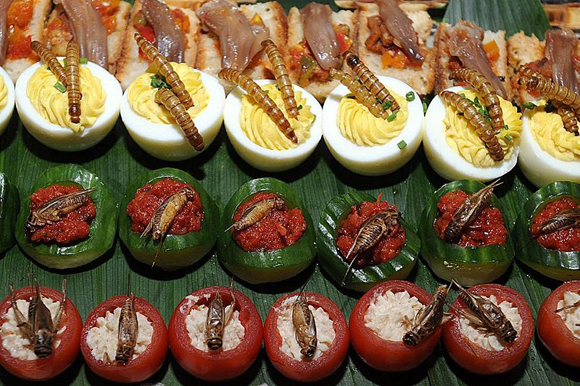Non-nutritive sweeteners: The pain continues
It’s been 2 weeks since the systematic review and meta-analysis on non-nutritive sweeteners was published. Let’s look at what happened on how it was reported. If you are interested in my interpretation of the July 2017 systematic review and meta-analysis published in the Canadian Medical Journal, which is what these media examples were reporting on, the link is here. Read More...
Non-nutritive sweeteners: This is going to hurt.
This is going to hurt. Read More...
The art of the absence of evidence

Barrett Newman’s Voice of Fire: http://en.wikipedia.org/wiki/Voice_of_Fire#/media/File:Voice_of_Fire_photo.jpg
This study comes from Ian Lane who asked whether the authors were, “entitled to believe that their conclusion is ‘true’.” Read More...
MOAR PROTEIN??
 I saw this abstract in my Facebook feed, and when I saw, “randomized controlled trial” in the title, I knew I had to read it because good randomized controlled trials in fitness and nutrition are hard to come by. Let’s say that I was pleasantly surprised and excited by this one; and truthfully, that doesn’t happen that often.
I saw this abstract in my Facebook feed, and when I saw, “randomized controlled trial” in the title, I knew I had to read it because good randomized controlled trials in fitness and nutrition are hard to come by. Let’s say that I was pleasantly surprised and excited by this one; and truthfully, that doesn’t happen that often.
Before we talk about the study, I think it’s important to differentiate between “high-protein” diets and “low-something else” diets. “High protein” means that the first maconutrient of importance is protein and when figuring how much carb and fat to eat, the calories not taken up by protein are then taken up by the other two macronutrients. “Low something-else” means that the first macronutrient taken into consideration is the “something else” (these days it’s usually carbohydrate), and then the rest is available for fat and protein. This doesn’t mean that a low-carb diet is automatically a “high protein” one, or, more importantly, that a “high protein” diet is automatically a low-carb one. Read More...
Hey, ass-hat with the abstract link. Yeah. You.
[Edit: More than a few readers gave me feedback about my use of a derivative of the r-word, which has gone from a medical term still used in medical journals to a pejorative one when used in a derisive context. A small portion of my patients are developmentally delayed and understanding the power of language (being more than moderately opposed to, “That’s so gay,” referring to anything more offensive than a bus of drag-nuns–which really isn’t offensive at all since the Sisters are AWESOME (honestly, I’ve been to their parties); so I guess”gay”=”awesome”), I’ve replaced it with “Ass-hat”. I have Googled its etymology and can find no reason not to use it. Now, onto the post.]
The rate at which psuedo-information flies around has now reached epic proportions. And not in a good way. Read More...
To anyone that says, "A randomized controlled trial in nutrition is impossible!" I can now say, "You just don’t want it badly enough."
 Should you go on the Mediterranean diet?
Should you go on the Mediterranean diet?As you are already probably aware, the Mediterranean diet is one of the diets that started it all. Its rules are relatively simple: lots of olive oil, lots of fruits and nuts, lots of vegetables and cereals, and some fish and chicken, and not a lot of dairy, red meat, processed meats, and sweets and some wine (And while Greece is part of Mediterranean, Greek yoghurt does not seem to feature prominently in this diet–so think on that a bit…)
The Mediterranean diet has been studied a lot. One could argue that of all the diets that have gone though fad phases, including the Atkin’s diet, the Mediterranean diet has been studied the most. In particular, its effects on preventing cardiovascular events (stroke, heart attacks and death from either) has been of particular interest. There have been major cohort studies, but never a randomized controlled trial. Read More...
You are going to die.

So there’s been ANOTHER study on some food and mortality. Last time, it was red meat. This time, it’s eggs. To be honest, I’m not even going to read it. (Ok, I lied. I read it. Who are we kidding?) It’s not the first study on eggs. It won’t be the last. And it definitely won’t be the last study of its kind in terms of trying to link what is really a very small part of life to mortality.
Being in medicine (yes, even in plastic surgery) has taught me a lot of thing, but one sure-fire experience is death, and dying. Most people in our society get very limited exposure to death, and fewer to dying. Most of us will only experience death when family members or friends die, which hopefully isn’t that frequent. Very few people have experienced dying–not many people sit with the dying anymore (in my experience). Some of us will personally face death prematurely, but recover, which may or may not change our view on life. Read More...
Hunger don’t give a sh*t

Last weekend I had the distinct privilege of being treated to a phenomenal meal at a Brazilian Barbeque restaurant. I don’t know if you’ve ever been to one, but it. Is. Amazing. Imagine if you will, a coaster with a red and green side. Flip the coaster to green and within minutes, servers carrying one of 9 types/cuts of meat on swords arrive to offload sizeable amounts of meat onto your plate. As much as you want until you flip that coaster to red. That is a crapton of meat. I had to flip my coaster to red out of surrender at one point because they just kept coming and I could not keep up (don’t worry, I did flip it back to green after I cleared my plate.)
Point being that if there was actually a medical condition and not just a colloquial term known as a “meat coma”, I would have been in one. I have no idea how many calories that meal was, but it was a LOT. Read More...
You don’t add higher octane gas to the house that’s on fire to put it out.

The World Health Organization’s definition of health, which I had to memorize in the first month of medical school, is, “The state of complete physical, mental and social well-being and not merely the absence of disease or infirmity.”
Personally, I think this is ridiculous because it’s basically tautological. The term “well-being” is essentially synonymous with “health”. In fact, the Merriam-Webster dictionary defines “well-being” as, “The state of being happy, healthy or prosperous.” Way to go, 1948 WHO’er’s. It’s like looking in the dictionary for the definition of “happy” and seeing “not sad” and then looking up “sad” and seeing its definition as “not happy.” (Flashbacks to being the child of immigrant parents inserted here. And yes, I was a weird kid and yes, my parents will tell you that.) Read More...
Just because it’s brown, doesn’t mean it’s chocolate

This blog entry comes courtesy of John Woodslave who posted the link on my Facebook page.
Martin Bland’s “How to Upset the Statistical Referee” should be mandatory reading for all researchers. It’s short, gets to the point and, if everyone paid ACTUAL attention to it, would kill this blog. Read More...